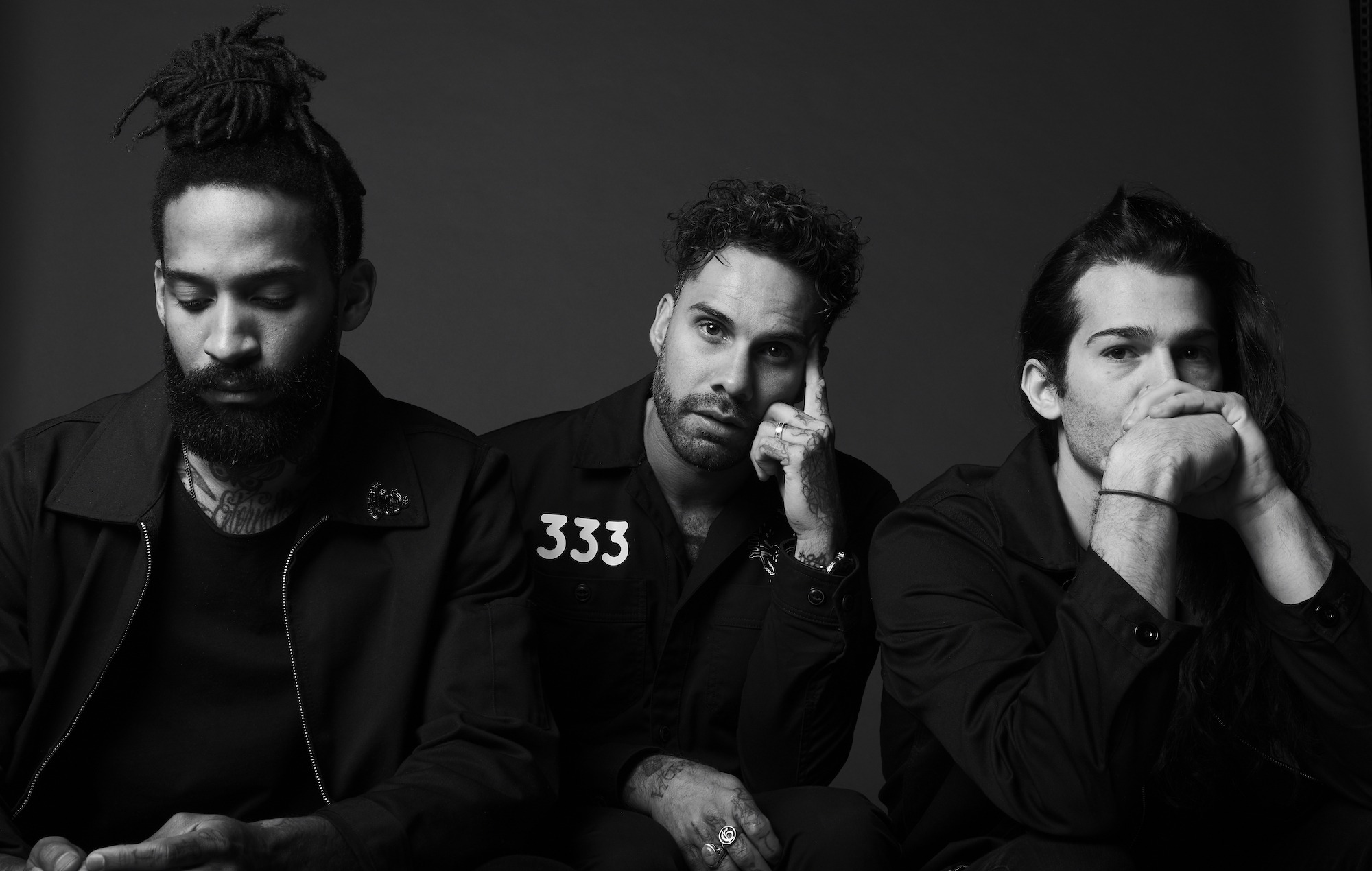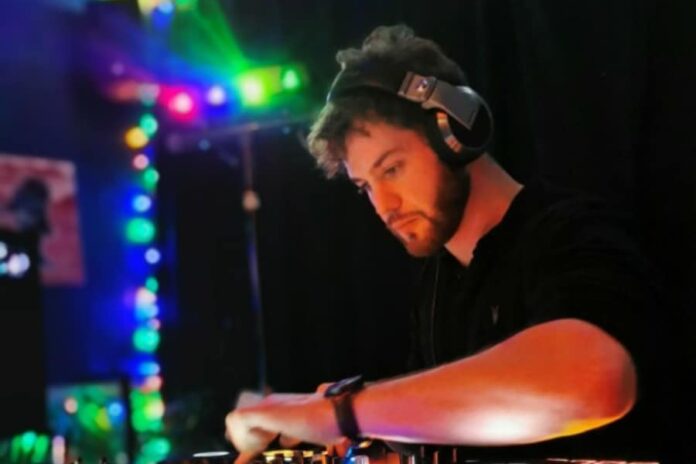
Fever 333: “When people say ‘I don’t see colour’, that’s ignorance”
Last October, Fever 333 released ‘Wrong Generation’, a knockout EP that coupled hard truths with a genre-defying blend of hip-hop, rock and metal. It spoke to the seedy underbelly of racial inequalities in the present day, demanding a call to action for revolution and unity against bigotry.
It was written in the aftermath of George Floyd’s death, where Fever 333 frontman Jason Aalon Butler spent 13 days marching on the streets for the Black Lives Matter movement. On the 14th day, he returned home and wrote what would become ‘Wrong Generation’.
The EP is a culmination of both those days protesting, but also the 35 years Jason has lived and experienced as a Black man in America, with Jason explaining at the time that the project is “art as activism first”.
Since its release last year, ‘Wrong Generation’ has become a huge force within the Fever 333 fanbase for starting uncomfortable but necessary conversations of race. Now, the band are preparing for their next chapter, gearing up for a whole new era of post-hardcore anthems, but not before they unleash another visualiser, this time for ‘For The Record’.
We caught up with the frontman to discuss the new visualiser, the important conversations that the ‘Wrong Generation’ EP started, and whether the rock and metal community are fulfilling promises made during Blackout Tuesday. Here’s what we learned.
The visualiser for ‘For The Record’ celebrates Jason’s love of skateboarding
The ‘Wrong Generation’ EP has come with some excellent visual accompaniments, that have ranged from Jason swinging from a ceiling in the title track, to smashing out the soulful ‘Last Time’ on a burning piano. But nothing says Fever 333 more than skating around and causing chaos like in the new visualiser for ‘For The Record’ (which you can watch below).
The new video sees Jason celebrate his love of skating. “Skateboarding taught me so much about creativity, alternative thinking and alternative utilisation,” he explains. “It was the thing that would get me to band practise as a young person. It helped me in more ways than I even knew at the time. It’s really the first time I’ve been able to put that into effect with my music, it was very exciting.”
‘Wrong Generation’ started conversations around racism in music – but more needs to be done
Fever 333’s ‘Wrong Generation’ is a boiling pot of anger, upset and frustration that sent tidal waves across rock and metal with a simple message – the revolution is now.
“The EP spoke loudly about something that we [people of colour] experience at all times, particularly in a western world,” Jason explains. Some internal conflicts came with the heightened awareness of the EP’s release, though. “I think that ‘Wrong Generation’’s reception was cool, and it was highlighted because of these more recent events that got more attention, but for me it was like ‘I don’t know’, we’re saying the same shit.”
“I was almost conflicted in a lot of ways when doing interviews prior [to its release] and having that conversation where people would ask: ‘why now?’ I don’t know why now. George Floyd to me was a totem, a large representation of what’s been happening for generations.”
While Jason was glad that these discussions around race were becoming more prevalent, he was wary of the conversation morphing into an online trend. “The danger we face as a people, especially in our generation, is when we start to think something is cool and we start trending it, it’s shelf life becomes shorter with every hashtag and with every post when something’s just posted, and no one does anything other than post about it. They don’t even want to talk about it outside of their phone or their computer.”
“The thing about this whole EP that I’ve been thankful for is the active participation I saw in the streets and on the ground, and people taking a much more direct approach that I’ve seen prior,” he concludes.
Rock and metal’s efforts towards Black Lives Matter have been “performative”
Last summer there was a huge influx of awareness toward the Black Lives Matter movement, including Blackout Tuesday, an international demonstration on June 2nd where labels and music outlets reflected on racial disparities in their field and ensured changes would be made to create an equal playing field.
But when asked if there’s been any change in the rock and metal industry since Blackout Tuesday Jason responds: “No, it’s been performative. I haven’t seen any change.”
“People talk so loudly about wanting to change, how they saw the wrong that they were perpetuating for fucking decades. They talked about it, they acknowledged it, then when it came to putting in the work and coming to the table with solutions, a lot of these people are nowhere to be found.”
Jason says at this point, change is not piecemeal. “It’s not a revolution until the boot that was on your neck is off.”
The Grammys need to think about race
Jason believes that the efforts made by the music industry following Blackout Tuesday so far cannot be considered change. “I do not [think it’s change], especially when the Grammys are straight-up not acknowledging The Weeknd, who just made history on Billboard 100,” he explains.
This year the Grammy Awards (which took place last month) have come under scrutiny for alleged racial bias, with The Daily Beast reporting The Weeknd’s recent snub and the subsequent statement he put out was a “fatal blow to the racist Grammys”.
In response to The Weeknd’s statement, the Recording Academy’s interim chief executive Harvey Mason Jr. told the New York Times: “We’re all disappointed when anyone is upset. But I will say that we are constantly evolving. And this year, as in past years, we are going to take a hard look at how to improve our awards process, including the nomination review committees.”
Jason explains that while he wants to give the Grammys benefit of the doubt, the recycled excuse of “we weren’t thinking about race” is inexcusable. In today’s climate, we have to think about it.
“We have to think about race now, as we’ve [people of colour] always had to think about that. So when people say ‘I’m not thinking about race’ or ‘I don’t see colour’, that’s ignorant to me. We are now in a position where you have to think about race, because that’s the least you can do when there’s been a bounty of POC cultures that have had to do this their whole lives.”

A Papa Roach and Fever 333 collaboration is coming
Back in February, Papa Roach‘s Jacoby Shaddix announced a collaboration the internet had been waiting for: Papa Roach x Fever 333. Appearing on an episode of the Lipps Service podcast with Scott Lipps, he described the upcoming team-up as a: “punk rock Beastie Boys”.
Jason opened up about the new track, explaining how it came about. “Papa Roach hit me up the moment I went into quarantine in New Zealand. I was in one room hotel room with my two kids, my wife and things are just looking bleak. They sent me this record and I thought ‘oh this is the shit!’”
“I think it came out really great,” Jason adds. “Papa Roach are the band, they’re really on some rockstar shit. Jacoby has been so gracious to me, he’s extended so much love. He is the last living rockstar, that man has been through it all and came out the other end looking and sounding better.”





